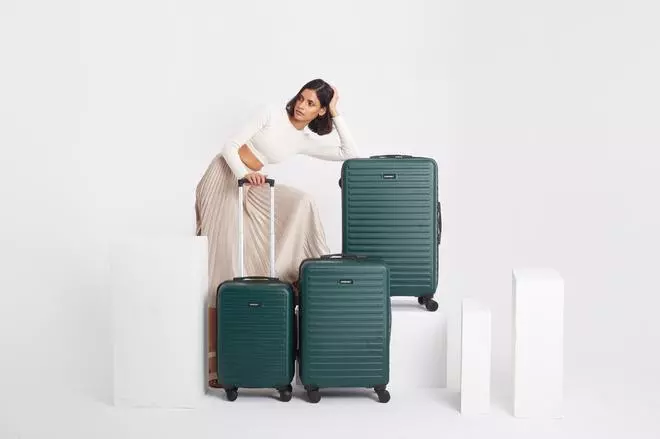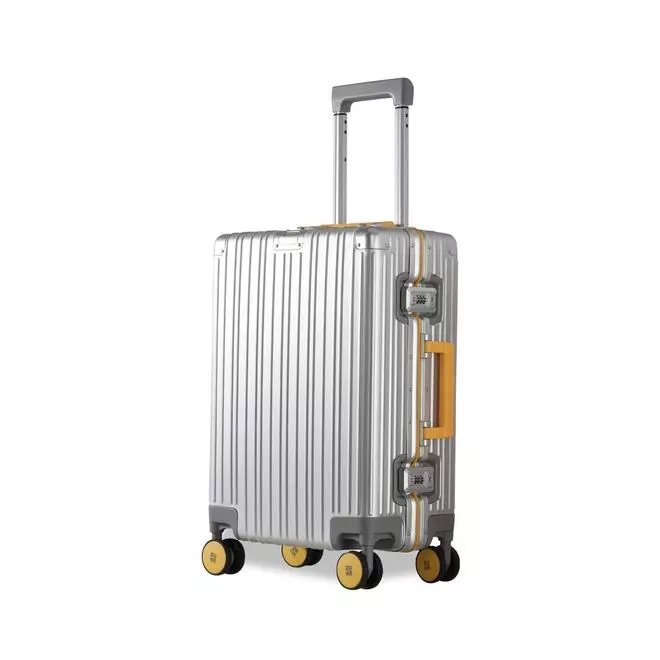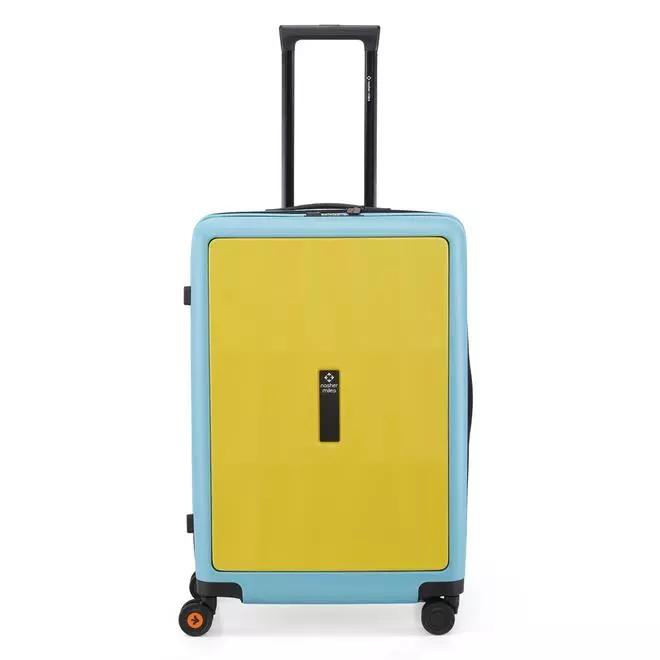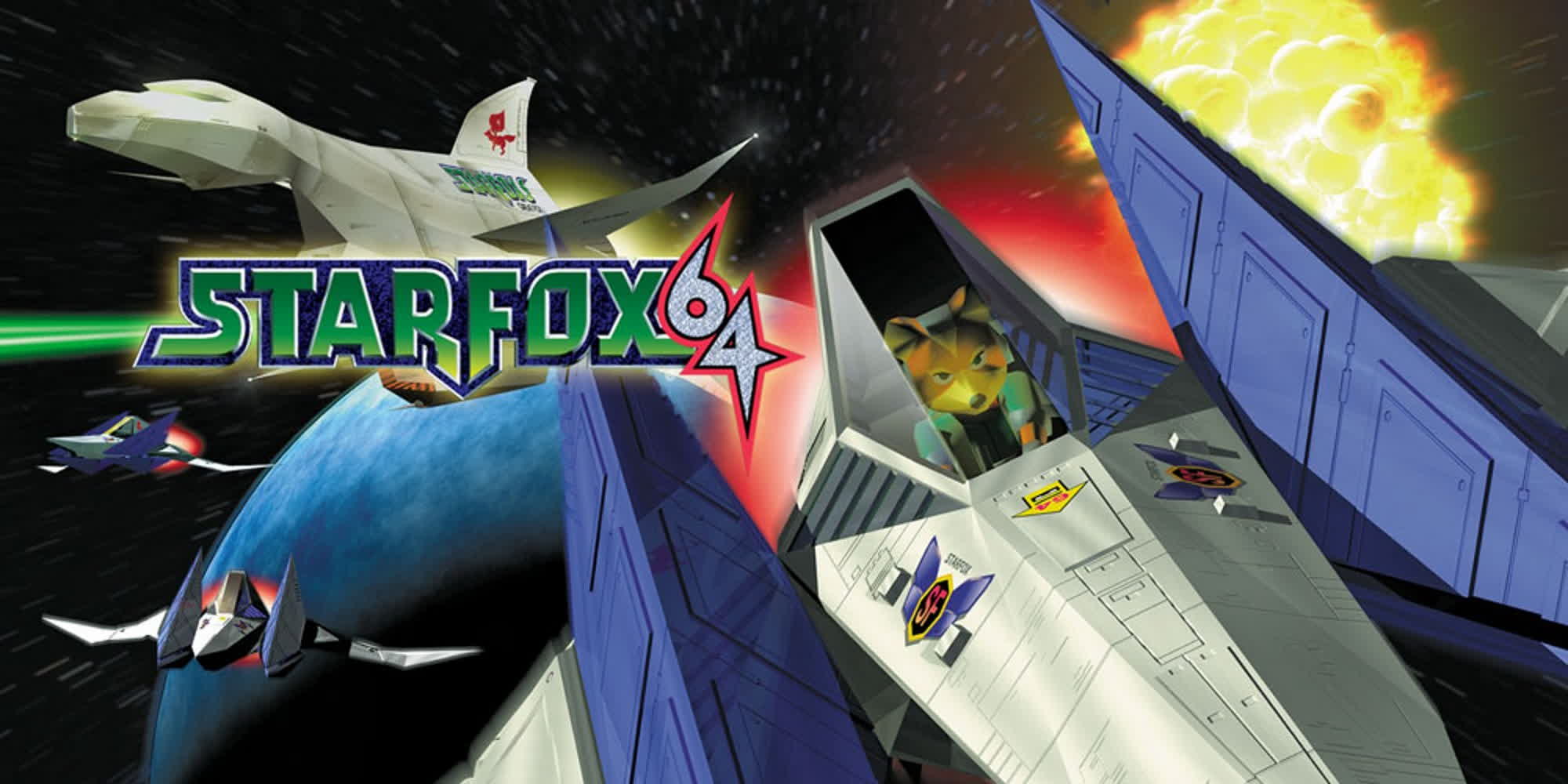Aarohi (name changed for privacy) often felt uneasy about losing her black suitcase among the sea of similar ones whenever she travelled. An online search helped her spot a uniquely designed suitcase that promised to stand out from the crowd and match her fashion-forward personality.
Zouk, Nasher Miles, Assembly, and Eume are some of the startups that are grabbing the attention of the footloose-and-fancy-free crowd with luggage in vibrant designs that reflect individuality — from a playful, preppy vibe to a sleek, minimalist aesthetic.
Vying for space on conveyor belts dominated by legacy brands, the newbies have raised $55.2 million funding over the past five years, according to market intelligence platform Tracxn. This year, especially, funding interest peaked at $29.1 million.
“The spike is fuelled by rising demand for high-quality, functional travel gear and the shift towards online retail. Investors are eager to support innovative brands offering unique solutions in an expanding travel market,” says Ashvin Chadha, co-founder and managing partner of multi-asset investment firm Anicut Capital, who has invested in Assembly.
The growing preference for personalised travel gear offers director-to-consumer (D2C) firms a competitive advantage over traditional players, he adds.
Pradeep Krishnakumar, co-founder of Zouk, notes that the ₹25,000-crore Indian luggage market is projected to reach ₹50,000 crore by FY30.

“Our products have India-inspired prints and designs. Both in the bags and broader luggage space, legacy brands have largely been focused on Western designs, with some being plain copies. We felt there was a disconnect with today’s modern Indian woman and that is where Zouk could build a brand,” Krishnakumar says.
Mohit Garg, co-founder and CEO of Assembly, says luggage is no longer viewed as just another commodity but a lifestyle product, and that is sparking a demand growth.
“Earlier, we would use our family luggage. Now, everybody wants a piece of luggage that is an extension of their personality,” he says, describing Assembly’s designs as leaning towards a minimal, classic aesthetic while paying attention to the organisational aspects of luggage and other travel accessories.

Nasher Miles, on the other hand, is big on colours. Co-founder and CEO Lokesh Daga says the company started off by addressing a major problem in the luggage industry — namely most bags looked similar and were available in either black, blue, or grey.
“You think of a colour, we have it in our portfolio. We have several designs for new-age customers aged 18-34. They want to up their fashion quotient, travel more, and stand apart,” he says.
Naina Parekh, founder of “premium approachable” brand Eume, says customers don’t mind paying extra for products that come with styling and aesthetics alongside functionality.
“Our aluminium suitcase is priced ₹20,000, but it’s also our highest selling product. The trunk, at ₹10,000, is one of our USP products. The backpacks, priced ₹5,000-7,000, are always sold out on our website,” she says.
Omnichannel approach
While D2C brands score over legacy players with a quicker turnaround time, Kumar Rajagopalan, CEO of Retailer’s Association of India (RAI), pitches for an omnichannel strategy to grow the market, reach out to more consumers, and build trust since, for some buyers, ‘touch and feel’ is important.

“With the rise of online and digitisation of retail capabilities, the barriers to entry into retail are broken down. However, the mere capability to sell online does not allow brands to become established in the longer run,” he says.
Assembly, Zouk, and Nasher Miles are digital-first, while also building an omnichannel presence.
Nasher Miles CEO Daga says, “We started by selling online on Amazon, Flipkart, and Myntra. Cut to 2024, we sell across marketplaces. We sell offline at around 1,000 stores pan-India. We are also on quick commerce platforms.”
In the current financial year, the company expects 10 per cent sales from quick commerce, 25 per cent from offline channels, 10 per cent from its website, and the rest from marketplaces.
Alongside online channels, Eume is sold at airports in Lucknow, Thiruvananthapuram and Bengaluru, among other places, and plans to soon open at least two exclusive outlets. From 80:20, it expects the ratio of online to offline sales at 50:50 within three years.
Zouk’s Krishnakumar says customers are using quick commerce platforms for last-minute buys, both for own use and gifting. Offline the company has five exclusive outlets and plans more — about 25 stores in the first phase and 75 in the next phase. “We’ve already signed more stores. A good portion of our recently closed Series B round ($10 million) is for expanding on the offline side,” Krishnakumar says.
For Assembly, 40 per cent of its revenue comes from its website, and 8-10 per cent from a corporate institutional channel, mainly for gifting, says Garg.
Make in India, or not?
Zouk says it takes pride in the fact that all its products are made in India, even though that decision delayed their launch by six month. Moreover, while the cost may be higher initially, once the business scales up, it is confident of reaping the cost advantage of local manufacturing, the co-founders say.
Eume imports its luggage range and manufactures backpacks, travel accessories, and soft luggage in India. Nasher Miles, too, sourced 80 per cent of its range from China until the previous financial year. However, in the first half of this fiscal, it has shifted 60 per cent of the manufacturing to India and targets 80-85 per cent local manufacturing by next year.
Assembly, which began entirely with local manufacturing, has imported 20 per cent from China this year. It plans to shift back to local sourcing next year.
Marketing muscle
The luggage startups are sprinkling some stardust to expand their market reach. While Zouk had earlier roped in Bollywood actor Sara Ali Khan and now has Malayalam actor Kalyani Priyadarshan as brand ambassador, Assembly has Jim Sarbh and Rahul Khanna, and Nasher Miles has cricketer Rishabh Pant.
Spelling out the advantages of being a digital-first brand that uses the digital medium to reach more customers, Garg says, “In the offline world, we get to know our consumers only through distributors and dealers. The storytelling becomes difficult. In the digital world, you’re directly in touch with them, and there’s no leakage in the messaging.”









Leave a Comment